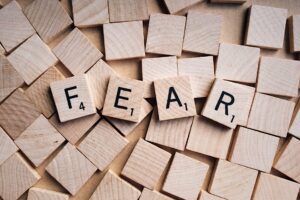Embarking on the journey of couples counselling is a courageous step towards strengthening the bond between two hearts. In this blog post, we delve into the transformative power of therapeutic interventions in relationships.
From navigating communication pitfalls to fostering deeper understanding, join us as we explore the pathways to healing and growth in couples counselling.
Choosing an experienced therapist like Sonya Hudson ensures you benefit from a wealth of knowledge and expertise. By looking into the subconscious, clients can address deep-rooted issues, boost self-confidence, and achieve long-lasting positive changes in their lives.
Understanding Couples Counselling
Understanding Couples Counselling is essential for navigating the complexities of relationships and fostering a deeper connection between partners.
In this realm, relationship therapy acts as a guiding light, aiding individuals in recognising their strengths, weaknesses, and aspirations, eventually contributing to a healthier partnership.
By looking into the layers of personal growth and introspection, couples counselling enables partners to embark on a journey towards self-awareness, paving the way for mutual respect and appreciation.
It cultivates a safe space where vulnerability is embraced, fostering trust and fortifying the bond between two individuals as they navigate the ebbs and flows of shared experiences.

How Couples Counselling Can Help?
Couples Counselling offers a transformative journey towards resolving conflicts, enhancing emotional well-being, and fostering mutual support within relationships. Partners can navigate challenges and strengthen their bond through dedicated couples therapy sessions.
One of the key benefits of couples counselling is the ability to create a safe space for open communication and vulnerability. Therapists play a crucial role in guiding partners to express themselves authentically and listen actively, fostering understanding and empathy in the relationship. By addressing deep-rooted issues and unearthing underlying emotions, therapy can lead to profound insights and a deeper connection between partners, ultimately paving the way for a more harmonious and fulfilling relationship.
Improved Communication
Improved Communication is a cornerstone of successful relationships, helping couples overcome communication issues and replace negative behaviour patterns with constructive dialogue.
When partners communicate effectively, they are better equipped to express their needs, listen actively, and navigate conflicts positively. Communicating openly and empathetically can foster trust, intimacy, and mutual understanding. Active listening techniques, such as reflecting feelings and summarising content, can improve communication dynamics and prevent misunderstandings. Setting aside dedicated time for meaningful conversations and regularly expressing appreciation for one another can strengthen the emotional connection between partners.

Conflict Resolution
Conflict Resolution in couples counselling involves identifying and addressing underlying issues that contribute to conflicts, fostering a harmonious resolution process.
Understanding the root causes behind disagreements is paramount in bridging the communication gap between partners. By looking into these deeper triggers, couples can resolve immediate conflicts and pave the way for a more solid and trusting relationship. It is essential for both parties to actively listen, express their feelings honestly, and validate each other’s perspectives. Empathy plays a crucial role in conflict resolution, as it enables partners to step into each other’s shoes and see situations from the other’s point of view.
Enhanced Connection
Enhanced Connection between partners is a key outcome of couples counselling, deepening emotional bonds and strengthening relationship commitment.
When couples engage in counselling, they are provided with a safe space to explore their thoughts and feelings, which can lead to increased understanding and empathy towards each other. Through guided conversations, partners can uncover underlying issues and learn how to address them effectively, promoting greater harmony in their relationship.
Shared experiences, such as participating in activities or setting mutual goals, can create a sense of unity and closeness. Strong communication skills, including active listening and expressing emotions openly, can foster a deeper emotional connection and build trust between partners.

Addressing Underlying Issues
Addressing Underlying Issues is vital in couples counselling as it enables partners to uncover and resolve the root causes of conflicts, paving the way for sustainable relationship growth.
Understanding and addressing these deep-seated issues is crucial for couples to rebuild trust, strengthen communication, and deepen emotional connection. By looking into these underlying concerns, couples can gain insight into patterns of behaviour, triggers, and unmet needs contributing to their conflicts.
Therapists are pivotal in guiding couples through this process, providing a safe space for open dialogue and facilitating constructive conversations. Throughout therapy, partners learn to listen actively, express themselves authentically, and empathise with one another’s perspectives.
Strengthening Commitment
Strengthening Commitment through couples counselling involves nurturing mutual support, fostering trust, and encouraging lasting dedication to the relationship.
Therapeutic techniques are vital in guiding partners towards deeper connections and improved communication. By engaging in active listening exercises, couples can enhance their understanding of each other’s perspectives, leading to more empathetic responses during conflicts.
- Role-playing activities can also help partners explore different scenarios and develop problem-solving skills, enabling them to address challenges together effectively.
Couples counselling often involves setting achievable goals as a team, encouraging collaboration and shared decision-making to strengthen the bond.

What Are the Benefits of Couples Counselling?
The Benefits of Couples Counselling extend beyond resolving conflicts, offering tailored support, a neutral environment for open dialogue, and professional guidance to navigate relationship challenges effectively.
One major advantage of couples counselling is the personalised support specifically designed to address each relationship’s unique needs and dynamics. This tailored approach allows couples to explore their issues in a way that focuses on their circumstances and goals.
In addition, the safe space for communication created during counselling sessions provides a platform for couples to express their thoughts, feelings, and concerns openly and without judgment. This environment fosters honest and constructive dialogue, which is essential for healthy communication.
The expert guidance can help couples develop effective strategies to navigate conflicts, improve communication, and strengthen emotional connections. This professional support equips partners with the tools and skills to foster a deeper understanding of each other and promote long-term relationship satisfaction.
Tailored Support
Tailored Support in couples work involves customising therapeutic interventions to address each partner’s unique needs and concerns, fostering individual growth and relationship harmony.
By tailoring interventions to resonate with a couple’s specific dynamics and communication styles, therapists can pave the way for transformative breakthroughs in their relationship.
Personalised support offers a safe space for partners to explore deep-rooted issues, confront emotional barriers, and build resilience together.
Therapists play a crucial role in steering the sessions towards productive dialogues and equipping partners with tools to navigate conflicts constructively.

Neutral Environment
A Neutral Environment in couples work offers a safe and non-judgmental space for partners to express their feelings, thoughts, and concerns openly, facilitating constructive dialogue and mutual understanding.
Creating this neutral therapeutic environment is essential for building trust and encouraging relationship vulnerability. Through active listening, validation, and empathy, therapists play a crucial role in guiding couples to communicate effectively and navigate differences with empathy and respect. This safe space enables partners to explore underlying issues, address unresolved conflicts, and work towards building a healthier, more fulfilling relationship. Creating a neutral zone for open dialogue is a cornerstone of successful couples therapy, allowing authentic expression and connection to flourish.
Professional Guidance
Professional guidance in couples work involves expert assistance from trained therapists who offer valuable insights, strategies, and tools to help partners overcome obstacles and enhance their relationships.
Therapists play a crucial role in creating a safe space for couples to explore their emotions, communicate effectively, and develop a deeper understanding of each other’s perspectives. Through specialised training and experience, they can identify behaviour patterns, address underlying issues, and guide partners in building healthier interactions.
By utilising evidence-based interventions and personalised approaches, therapists can give couples the power to navigate challenges with resilience and develop lasting solutions. Their guidance can foster emotional intimacy, improve conflict resolution skills, and strengthen trust and connection in relationships.

Lasting Results
Lasting Results in couples counselling are achieved through addressing root issues, developing effective communication strategies, and building strong foundations for sustainable relationship growth.
When couples delve deep into the root causes of their conflicts and challenges, they can unlock a pathway towards genuine understanding and empathy. By learning how to communicate openly and honestly with each other, partners can break down barriers and strengthen their bond in remarkable ways. Trust, respect, and mutual support are key elements in creating a solid emotional foundation for a lasting, fulfilling relationship. Therapeutic approaches like Emotionally Focused Therapy (EFT) promote secure attachment and emotional connection, leading to profound transformations in how partners relate to each other.


